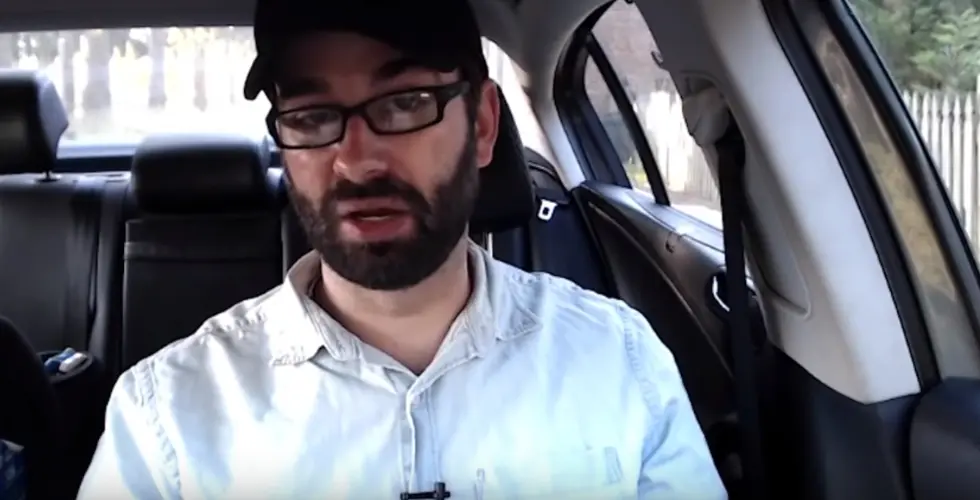
Matt Walsh recently argued against the existence of bodily autonomy. In Walsh’s estimation, bodily autonomy can’t exist because it’s a pro-choice argument which “necessitates either that the humanity and personhood of the [fetus] depends on the mother’s wishes, … or it’s an irrelevant question because the mother has her body and she can do what she wants with it.”
I’m guessing Walsh doesn’t have libertarian tendencies, but for the purpose of this article I’m taking bodily autonomy to mean an aspect of libertarian self-ownership. While Walsh shoots from the hip, libertarianism has a foundation that disproves his argument.
Walsh believes that if bodily autonomy exists then anarchy will ensue. (As an individualist anarchist, I’m going to set aside the wonderful irony of this statement). What he most likely means, however, is that chaos and lawlessness will ensue because, he thinks, bodily autonomy provides the basis from which to murder each other. He begins his argument by immediately setting up a false dichotomy: bodily autonomy vs. personhood.
These two ideas are not mutually exclusive. It’s not an either/or situation. Humans are person’s with bodily autonomy. Bodily autonomy means that, because we own ourselves, no one has a right to violate our bodies. This entails freedom of movement, being secure in our persons, reproductive rights as far as choosing our sexual partners and efforts to prevent conception, the right to self-defense (of which, I hear, Walsh is a big fan), among many other things. Bodily autonomy is also what helps explain why sexual assault, rape, pedophilia, murder and a myriad of other things are criminal actions.
Whether pro-choicers use the concept of bodily autonomy correctly or not, at this stage, is beside the point. It is true, that the sharpest pro-abortion advocates believe a woman has a right to determine who has personhood, and that abortion is the means by which to exercise this alleged right.[1]
Walsh is suggesting, however, that we either have bodily autonomy or we have personhood, and that personhood is somehow negated simply because the pro-choice understanding of bodily autonomy is overstated. But it’s not good enough for Walsh to simply distinguish between two persons who both have rights. Walsh takes it a step further and wants to “destroy” the concept of bodily autonomy entirely so that pro-choicers cannot use it as their “excuse” to murder.
In Walsh’s mind, bodily autonomy “necessitates” murder and so he’d “like to prove that it’s completely, totally, utterly, ridiculous.”
He presents an argument with four key points:
Together, Walsh claims these are good reasons for rejecting the existence of bodily autonomy.
Walsh begins, full stop, by denying the existence of the woman’s bodily autonomy on the basis of the fetus’ bodily autonomy. (Though he doesn’t use those exact words). What he says is, “it [the fetus] is not your body.” That ought to end the discussion, right? Because the woman’s bodily autonomy ends where the fetus’ begins, right? No, he’s arguing that the woman has no bodily autonomy, and her body is of no concern, because what’s at stake is not her body, but the fetus’ body. [2]
To some degree, he gets this right. His first objection is on the basis that abortion is not simply withdrawing life support, instead, it’s proactively killing. Bodily autonomy allows for what amounts to eviction; removal of the fetus without killing it, which Walsh correctly points out that abortion is not simply disconnecting life support. He would have been wise to end it here, though it would not support his final argument if he did. He further asserts this is why arguments for abortion to save the mother’s life are “bunk.” [3]
Thomson’s “violinist” isn’t properly analogous because the unique relationship between the woman and her offspring, isn’t the same kind of relationship between you and this stranger. Walsh is correct here, but his reasoning is faulty.
Walsh appeals to the law for the basis of claiming Thomson’s analogy as false. It’s the law, he says, that requires parents to make sacrifices to support their children; everything from providing for basic needs to compulsory education. But the law doesn’t require strangers to provide life support. He says that parents aren’t autonomous because the state has a claim on parental authority, which is “what everyone in society actually believes.”
If appealing to the law is sufficient for establishing claims of parental obligation, then Walsh is estopped from arguing against the appeal to the law for establishing bodily autonomy. However, he rightly points out that, if bodily autonomy is provided for by the law, and the law is changed to revoke bodily autonomy, then you didn’t actually have the right to begin with. But if Walsh uses his own logic, then parental obligation on the basis of law is also not real obligation. If the state changes the law, and revokes parental obligation, then you can’t claim that parental obligation existed to begin with.
Instead, both bodily autonomy and parental obligation must be founded outside the law, so as to be incontestable, but Walsh doesn’t see this.
Walsh experiences some cognitive dissonance in considering the idea that a woman could possibly have a natural right over her own body even when pregnancy is a natural state. Walsh: “in order for bodily autonomy to work, it could not come from nature because pregnancy is from nature.”
If we’re going to be absolutely true to science, then we can’t say that pregnancy comes from nature. It’s not spontaneous. Nature doesn’t “do this to women.”
Let’s be clear. Pregnancy is certainly a natural state, but what comes from nature is not pregnancy itself but the capacity to reproduce. Pregnancy cannot occur without one key ingredient: human action. Pregnancy, therefore, is the natural consequence of human action. A fetus is the product of human action resulting in conception, and it’s the one product of human action that comes equipped with its own rights. Human action is a distinct category which requires the precondition of self-ownership, ie bodily autonomy.
Walsh’s view of rights suffers the ambiguity that Murray Rothbard seeks to avoid through the concept of self-ownership. So we have to go further than just claiming our rights come from God. It would be fine if Walsh were saying that a woman’s bodily autonomy doesn’t extend to her the power to determine the rights-bearing status of the fetus. But he doesn’t. He simply affirms the bodily autonomy of the fetus at the expense of the woman’s.
Libertarian prolifers reject this, holding that the absolute self-ownership of both the woman and fetus are necessarily upheld, not one at the expense of the other.
If Walsh was not more interested in shutting down pro-choicers, then he might see the benefit bodily autonomy actually provides the pro-life case. One major problem with his view is that it declares that women don’t have bodily autonomy because the more important issue is the baby. This is an emotional appeal to the condition of the baby’s defenselessness, and an accusation of female selfishness. To be sure, the baby is, in fact, defenseless, but appealing to the baby’s defenselessness as the reason why a woman can’t have bodily autonomy, is an emotional appeal. And as Walsh’s buddy, Ben Shapiro would say, “facts don’t care about your feelings.”
Women have self-ownership; and by extension bodily autonomy. Fetuses have self-ownership; men have self-ownership, and by extension bodily autonomy as well. And it’s this self-ownership which make it possible to claim any rights to begin with. More to the point, the absolute self-ownership of the woman and the fetus necessitates not aborting the fetus because it would be an abject rights violation. Without the concept of bodily autonomy viz self-ownership, then there is no case to be made that abortion is murder.
The very reason why abortion is murder is because bodily autonomy exists, and the self-ownership of the woman and the fetus necessitate a non-lethal response to unwanted pregnancy.
For more on why self-ownership is necessary to the pro-life position on abortion, please listen to my podcast episodes on Fetal Self-Ownership. [Part 1] [Part 2] Also, see my announcement about my upcoming debate with Dr. Walter Block on his argument for evictionism.

Articles posted on LCI represent a broad range of views from authors who identify as both Christian and libertarian. Of course, not everyone will agree with every article, and not every article represents an official position from LCI. Please direct any inquiries regarding the specifics of the article to the author.
Did you read this in a non-English version? We would be grateful for your feedback on our auto-translation software.
), //libertarianchristians.com/wp-content/plugins/smartquizbuilder/includes/images/template6-latest.jpeg))

), https://libertarianchristians.com/wp-content/plugins/smartquizbuilder/includes/images/template6-latest.jpeg))








































), https://libertarianchristians.com/wp-content/plugins/smartquizbuilder/includes/images/template6-latest.jpeg))
), https://libertarianchristians.com/wp-content/plugins/smartquizbuilder/includes/images/template6-latest.jpeg))
), https://libertarianchristians.com/wp-content/plugins/smartquizbuilder/includes/images/template6-latest.jpeg))





*by signing up, you also agree to get weekly updates to our newsletter
Sign up and receive updates any day we publish a new article or podcast episode!